
Vojkan Todorovic, GDC Services: “In 2023, a Customer Experience Centre must be as quick as an octopus with eight mighty tentacles”
Vojkan Todorovic, Head of Customer Experience Centre (CXC) at GDC Services, speaks on how telephone robots can save money for large companies, whether a future is possible in which there will be no place for live operators, and what place is GDC Services in the digital world right now.
Your company provides IT services primarily for large businesses. What do you think of the main problems of major players in the market?
Vojkan Todorovic: Now, I think that the main problem for everybody is how to find and retain people. Primarily, the big companies with the tendency to train the interns. People know about the inner culture, about what's going on inside the company, and they either come as a summer job or they don't tend to stay there for too long at all.
Also, regarding languages, the really good talents are hard to find, even English-speaking agents have become a problem across Eastern Europe – especially, Poland or Czech Republic, Romania, and so on. Those markets have started to drain out, all of the major competitors and providers are having similar problems with quality resources.
And this problem relates directly to the current status, which is everybody's trying to do some sort of automation or play with AI. But from the feedback that I have received or from my private experience, I don't think it's there yet. We try to use some of those services, and still, the chatbots are not fully developed, all of it needs more practice, so I think that is goes hand in hand, recruitment and retainment of people alongside with new technologies, while there’s kind of a gap in between.
Vojkan Todorovic: The first thing that we do to optimize costs is, what we call it, “a diet plan” – to check what our customer needs, what they have currently, and to check how we can optimize and improve it. We don't believe in just one product that can help everybody – that's why we call it the diet plan. We need to have tailored service provided to every customer and that goes from automations – to productivity gains – to shift patterns, how many people we have.
It's all done in one maturity assessment, and we take what the customer needs, go through it, provide a solution to the customer (at least a draft of the solution), and then we go with a customer into details – so trying to catch the low hanging fruit first, but the main goal is to go for productivity gains. We see tailored optimization, shift patterns, staffing, and then, if needed trying to partner up with other providers, other third parties that provide services to the end customers, so we can see what we can do together jointly with them to bring value to the users.
How exactly can the Customer Experience Centre help a business? What business processes does it affect?
Vojkan Todorovic: It can affect everything. E.g., if you take a retailer – small, medium, large, as the company size doesn't even matter here – if their hardware is down, or the server goes down, their store controller goes down, and they can’t pass credits and debits, as everybody doesn’t use that much cash anymore. As a result, the store is down itself. When the store is not making money, the company is not making money as well – so this retail situation might be the best example of how much it can affect business.
At the same time, it goes for all industries. We had a customer doing the lab researches – they had their internal software that we were supporting. And if the software would to go down or there were some other issues, everything was just immediately put be on hold. And that's when you lose money.
So, I think the importance of CX solutions is big. In today's age, if you are selling a product you need to have somebody backing you up, if you’re doing a service then you need to have somebody providing that smooth service for your own customer. Never mind if it's B2B or B2C – I think that it's an extremely important part of our everyday now.
What digital technologies do you use in your support service? And what would you like, but have not yet implemented?
Vojkan Todorovic: We are trying to be extremely flexible; our preference is to work on AWS for telephony, and we’d prefer Service Now as an ITSM tool, but in reality, it’s not a must-have. So, if the customer is working with certain types of technologies, we make sure to onboard them, as we like to explore new things and technologies ourselves.
That's how we went through a lot of different tools and reports. It makes us look stronger and it's easier to absorb any new technology. So that's kind of a mix of the tech that we would prefer, especially for somebody who’s either on some outdated tech or somebody who’s just opening a business and needs a Customer Experience Centre, but at the same time, we're extremely flexible to work on the customer’s tools as well.
Regarding what we would like but have not yet implemented, I would like to play a bit with AI. I think it's still uncharted territory for many things, but it can deffinitely be useful. I’d also like to use RPA a bit more, as we already used it in the past on some projects, and would like to do that in the future, as it can help us be more productive on the backend where people can focus on what's most important and that's a customer experience and then the customer care as part of the call.
Is it possible today to create artificial intelligence that will completely replace a live operator with minimal losses for the client?
Vojkan Todorovic: I don’t think so. Techwise – yes, as technology is wild now, but there is this demographic issue that not all customers and industries have people of the same age. So if we take Netflix or some of the nowadays’ gaming companies, we know that the majority of their staff is a younger generation that is kind of “born with the cellphone in their hands” – they're used to chats, to different types of communication, whereas meanwhile somewhere in manufacturing or retail you have people that are 40-60 years old who come from totally different day and age. And we know exactly: when they want to report the problem, they need to hear somebody's voice.
It is already common to have a spreading thought that chatbots and AI are great alternatives to live operators, as they can detect the voice and even show empathy, I still don't think you can propose a robot to the elders. They cannot have that portion of empathy that these people want, and… sometimes people just want to talk.
I think the tech is there, but it still needs some more time, as the people need to teach themselves and that depends (again) on the region they live, etc. I still know a bunch of people who are afraid to order from AliExpress because somebody is going to take all their money. There is always a human aspect to it as well, so it's not only how fast we develop technology, it’s how long we remain humans.
In which industries/companies have you previously implemented the CX solutions? What results did it lead to, and what problems were solved?
Vojkan Todorovic: We were everywhere. In our portfolio, we had industries like manufacturing, large retail ones, biotech, healthcare companies, Banking, and much more. When you implement it, CXC is a pretty obvious thing to see if it's failing or not as it's all related to KPIs.
So if you have 30 seconds to answer a call, there is no running away from that – and at the end of a current period we see how good we are: if the contract says that we should have done 80% of calls in 30 seconds, and we’ve done around 91-92%, we know we’re in a good place, as we're 12% better than it contracted, thus we know we are providing better service to the end-customer. All of the key performance indicators in the CX services from telephony to tickets are pretty visible, they can all be pulled from the report.
As for the results, I must say they’re always satisfactory. Depending on the customer, monthly, weekly, or once per quarter we have these continual service improvement calls where we see all the processes, all the gaps in the previous period, and ways to fill and improve them by the next call. With that improvement, we usually do a service-based type of contract which leads to a lesser number of incidents generated = lesser costs, etc.
What is GDC Services in terms of a modern business?
Vojkan Todorovic: First of all, it's a culture. We're a group of people with the same goal we all want to be there for our customers. And I'm not just talking service desk but the whole company right from top management to middle layers to every employee: we want to be customer-centric, to be a team, we want to grow, to become that culture that people would like to be in. We always think: “Hey, we're here for sometimes 8-10 hours a day, and we’re not a family or a group of friends, so we have to make it work to produce the best atmosphere that we can”.
Creativity, from my point of view, is something that outstands us from the rest of the integrators. That’s when we’re coming back to the things I said before about the “diet plan” for each customer, where service is not a fixed product looking like X and the delivery is Y. We want to be creative with every customer.
We want to be stable we want to keep and retain our people. We also have a lot of experience: everybody has international experience in working on mid and large-scale projects in international companies with multiple end-users ranging from 5,000 to 65,000, so we are pretty experienced and have been learning from all of those partners over the years, in order to be prepared for new challenges.
And last but not least, we’re adaptable: in this fast-changing world one of the most important long-term things is that you are able to evolve with all tech, all the unfortunate situations that are happening around the world, you need to be very quick and need to be like octopuses with eight long tentacles, with the ability to change shape color and tactics in an instant. And that’s what we are in GDC Services.
__________________________________________________
Know more about services:

Request a call
Related news



